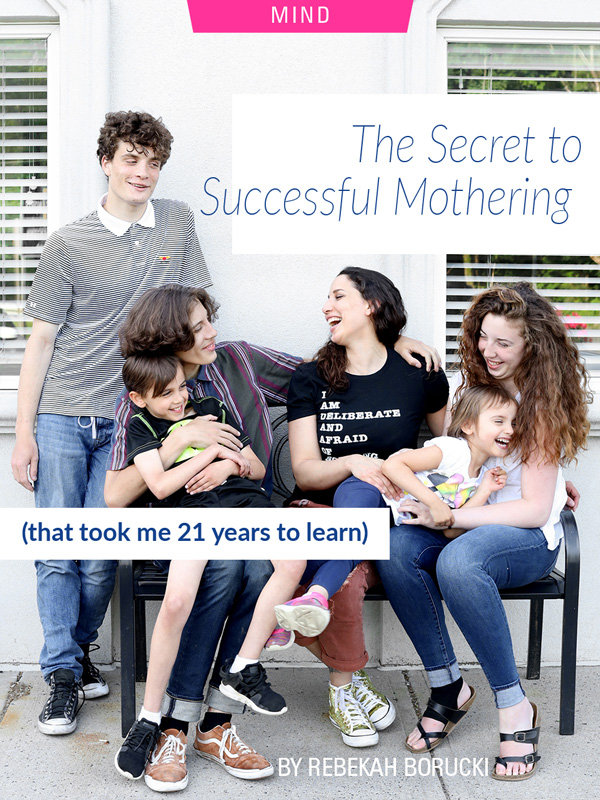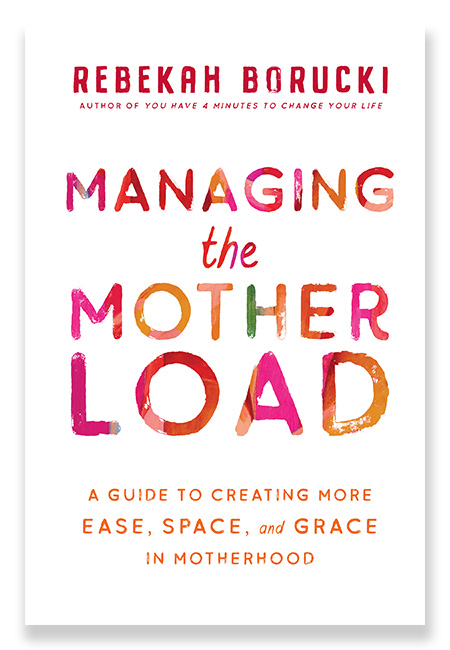
One mother’s ode to parenting in all of its complexities — how in loosening the hold on her children she found space to be a better parent
—
I didn’t want to write my second book. The book I pitched to my publisher couldn’t have been more different than the one that’s landing “wherever books are sold” this month. But it’s the book they asked for (after they politely rejected my pitch), so it’s the one I was called to create.
I didn’t want to write it because I didn’t feel qualified to deliver what was requested — a book about parenting, filled with the wisdom that sprang from all of my many years of mothering five children. Nope, I couldn’t even pretend to feel like I was the right one for the job. Because the truth is that I was struggling. This offer to write my second book — a dream for so many people — was coming at one of the lowest points of my life.
My oldest son, the second of my five, and I had been estranged for nearly a year at that point — a separation that began with a set of explosive arguments followed by his decision to move out of the family home. I’ve heard it said that “you can only be as happy as your saddest child,” and those words proved true for me. There could be no joy in my life while he was hurting, only a gloomy haze clouding every moment. I felt frustrated and hopeless, like there was nothing I could do to repair our relationship or to help him through this challenging phase of his life.
The harder I tried, the further I pushed him away.
But I’m a writer. So I wrote.
I wrote about what I thought I knew to be true — what had worked (so far) and what didn’t (which was already painfully obvious). I shared lessons; some rooted in everyday rites of passage that a lot of women experience, others born from trauma and loss. Not long after making my way through the first pages, it became clear to me that what I was writing was not at all a parenting book, but rather a book about my experience of motherhood.
So there would be no advice on how to get a kid to go to bed peacefully or eat their vegetables without protest. What emerged instead was a message…
From my heart to the hearts of mothers everywhere, on how to navigate all the chaos, heartbreak, joy, and beautiful messiness of parenting while still maintaining a sense of self.
And even go after some big dreams in the process, because that’s exactly what I had been doing during those 21 years of parenting my little humans.
I filled more than 200 pages with stories, lessons, and tips for any mother to take care of her mind, body, and spirit. I dug deep into my past to uncover how the way my mother and father parented me as a child influences how I show up as a parent today. Through that process, I discovered a lesson so sweet that it became one of the main themes of the book and the “secret to successful mothering” I want to share with you right now.
Like I said in my book, I can only call myself the expert of five children, and on most days I’m not even confident in my expertise in parenting them.
You see, I’m less of an expert and more of a diligent and dedicated student, standing in witness and awe of their “becoming.”
And every once in a while, I have to remind them to look both ways before crossing the street, put a bandage on a scrape, and get after them to do their homework on time. But beyond the joyful acts of loving and dutiful acts of protecting, there’s all the stuff out of my control that I have to leave to the Universe, faith, and trust. I’m forced to practice surrender.
It’s in surrender, letting go, that we find even more joy, growth, and success in motherhood.
Surrender in parenting is merely embracing the idea that our children — as the legendary poet, Khalil Gibran, said — come through us, not from us. When you understand and embrace that concept, you can begin to surrender some control and release a little bit of the pressure you might be putting on yourself to be the perfect mother or to raise the perfect child.
Our children do not belong to us. We are merely given the task of watching over them for a little while.
And they are certainly not made only of our DNA. They have their own soul, born from another place. I have a specific set of responsibilities in parenting my children, and one of them is letting go enough to allow them to become who they were sent here to become, separate from my plans and ideas about how their paths should look.

Let me put it another way for you. Motherhood is not unlike gardening when it comes to the concept of control and surrender. In gardening, we prepare the soil, plant the seed, nurture it with fertilizer, food, and water, and then step back and watch it grow. The sun and rain have their part in it, too, and that part is out of our control. Once in a while, we have to step in and remove some weeds so growth can happen unobstructed, but there’s also so much of the process that we can’t dictate.
Parenting is a lot like that. The growth and success of a child depends on so much more than what is in our control.
I often say that I was a mother before I was a woman. When I had my first baby, my daughter Winona, at the tender age of 19, I had no idea of who I was or what I truly wanted to be, but I was determined to defy every stereotype of the teenage mother. At the same time that I was raising her, I was raising myself as a young woman and teaching myself how to parent. I read every book, attended every class, and took in every bit of advice I could. It was so important to me to be perfect, so I micromanaged every part of motherhood, leaving nothing to chance. Winona grew up to be a brilliant and responsible young woman, but parenting her in such a restrictive way created so much unnecessary stress and little room for her to express herself. Thank goodness she’s a willful and independent spirit who rebelled against my tight grasp. She’s so different from me, and I love it.
What I’ve learned since is that the more willing I am to release control, the easier it is for my children to find a path perfectly suited for their individual learning and growth.
So this was my intentional practice during the time I was writing. I had to know that what I felt to be true and what I had seen in glimpses throughout my years of parenting, was actually true.
I decided to let go of my son so he could find his own way.
I told him that I loved him, that I will always be his mother, and that our home will always be a soft and supportive place to land. I apologized for holding on too tightly and for thinking my way was the only way. I told him that I trusted him and that I believed that he has the wisdom to create a path to all his heart desires and all that the world has to offer him.
I let go, I surrendered, and I set us both free.
So while that had been my practice in fits and starts over the years, I had never been so intentional in living the practice of surrender every day. I resolved to continue to tend to my little garden, full of tiny seeds that were growing into the most beautiful buds and blossoms, and let the sun, wind, and rain take care of the rest.
The good news is that my son and I are on a (slow, steady, careful, compassionate) road to healing. I’m committed to keeping my promises, we’re learning to trust each other again, and the gloomy haze has lifted. This was hard work — surrender is no easy task for a mother. But it’s one that allows for both mother and child to bloom so magnificently.
You may also enjoy reading Getting Unhooked: Learning to Detach From Reactivity in Parenting by Mark Bertin
